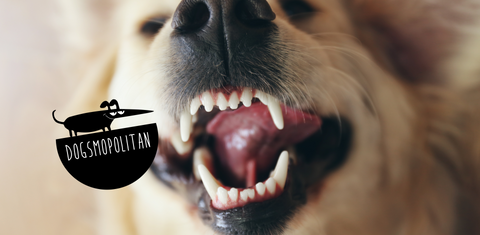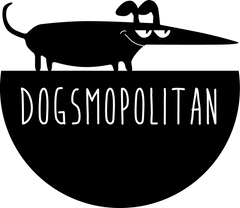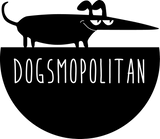Why dental care is so important for dogs

The change of teeth then occurs between three and a half and four months and is usually completed by six months of age. Most dog breeds have a so-called scissor bite, in which the upper incisors overlap the lower row of teeth. A special feature of the dog's dentition is that the dog hardly chews with its jaw joint; instead, the back teeth act like scissors. The last premolar of the upper jaw and the first molar of the lower jaw form a single unit that serves to cut meat. The canine and fang teeth are primarily designed for biting down on prey.
Healthy teeth and a strong jaw are essential for health and a high quality of life in dogs. However, just like humans, our beloved pets can also develop dental problems that are anything but harmless. Untreated tartar is considered a trigger for numerous dental, oral, and jaw diseases. It provides the ideal breeding ground for bacteria that can lead to gingivitis and periodontitis. If bacteria enter the body, it can cause liver, kidney, or heart damage.
Unfortunately, most dogs are affected by tartar over the course of their lives. It's important to act as soon as you notice tartar in your pet, as this can prevent most of the resulting dangers.
To detect tartar early, you need to check your dog's teeth regularly. It's best to get your dog used to this procedure from a young age. If the teeth are covered in a solid, yellowish to brownish substance that can't be removed even with careful finger flossing, it's most likely tartar. In this case, the only solution is a visit to the vet, who will remove the tartar under anesthesia. If you don't do this, you risk your dog developing gingivitis and possibly periodontitis later on.
One indication that something is wrong with your dog's teeth is bad breath: if this persists for a while, you should definitely have your vet take a closer look at your dog's teeth.
To prevent treatment from becoming necessary in the first place, you can prevent it with regular dental care. Therefore, you should get your dog used to brushing his teeth early on.
Special toothpastes such as the Lila Dent toothpaste in combination with the tooth fingerling from our shop are the perfect tools for cleaning your furry friend's teeth.
Human toothpastes are not suitable for cleaning a dog's teeth, as they contain substances that are incompatible with dogs. You should also let your pet chew plenty of hard items, such as beef chew bones, chewable ears, or even special dental sticks.


